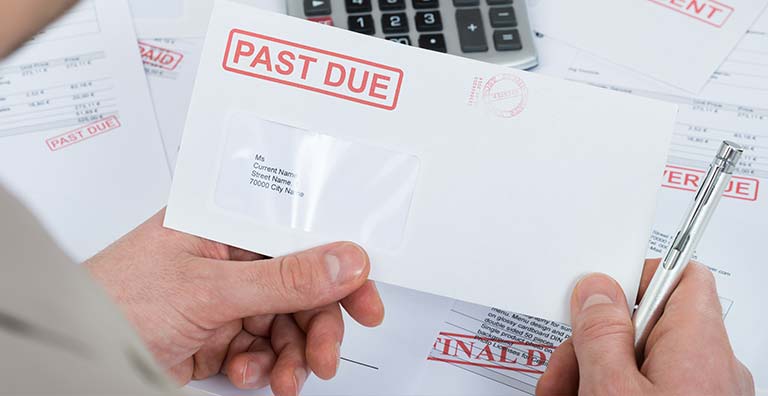A guarantor mortgage is a great solution for anyone who is unable to obtain a normal mortgage, has little/no deposit or would like to borrow more than they have been initially offered. Here we explore how guarantor mortgages work, the family offset and family deposit mortgages.
Guarantor Mortgage Guide Contents
If you’re looking for the answer to a particular question, click on the links below to skip straight to the answer:
What is a guarantor mortgage?
How do guarantor mortgages work?
Who can be a guarantor?
Who are guarantor mortgages suitable for?
What are the requirements to be a guarantor?
What are the types of guarantor mortgage available?
What is the guarantor responsible for if you default on repayments?
Does a guarantor need to be employed?
At Mortgage Arrangers, we specialise in assisting you with securing guarantor mortgages. Lenders have very specific requirements and it can be very difficult to navigate the best deal for your circumstances. If you’re interested in a free consultation or would like some advice, please contact us.
What is a guarantor mortgage?
The guarantor mortgage makes it possible to take out a mortgage even if your deposit or salary don’t meet the traditional requirements.
When another party such as a parent or another family member is responsible for part of the risk by offering security on a loan, it’s known as a guarantor mortgage. They may offer assets such as their own savings or even their own home in exchange for borrowing the loan. This puts you into a stronger position to be offered a mortgage or access to better interest rates. The guarantor is then responsible for any missed mortgage payments.
How do guarantor mortgages work?
A guarantor mortgage makes both parties responsible for the payments. If your circumstances change for the better during this period, you may then investigate releasing the guarantor from the mortgage.
The guarantor can also be released from the mortgage once you have reached an agreed milestone in paying off your mortgage. This milestone may be a set time period, or it may be a certain amount.
For example, Aldermore is a lender of guarantor mortgages. Their current deal makes it possible to borrow up to 100% of the value of a property. A grandparent or a parent must then guarantee the amount of mortgage that is more than 75% of the value of the property.
The family member would normally offer their own property as collateral on the loan. This can only happen if they own a significant share of their property outright.
Who can be a guarantor?
In most cases, given the nature of a guarantor, it will likely be someone who is either direct family or close relative. The main reason for this is that is their responsibility to ensure that you as the borrower are meeting your obligations and they are also taking on a financial risk. On occasion, the guarantor does not have to be a blood-relative if there is a logical reason such as foster parents, mother or father-in-law or a step parent. Typical relations include:
- Parents or step parents
- Grandparents
- Brother or sister
- Aunt or uncle
If you are looking to apply for a guarantor mortgage or if you are unsure if you’re eligible to become a guarantor for someone looking to borrow, please contact us. An experienced member of our team will be able to advise and provide immediate help. If you’d like to speed up the process, try our instant mortgage calculator which will help us gather some of the initial information required to determine your suitability.
Who are guarantor mortgages suitable for?
Guarantor mortgages are the most suited to the following circumstances. If you have:
- A small income – you may want to borrow more than you would normally be allowed under the affordability test of your lender.
- No deposit or a deposit that is too low
- A weak or bad credit score
- A credit history that does not satisfy the lender
You can seek further information from our team as to whether a guarantor mortgage would be suitable for your situation here.
What are the requirements to be a guarantor?
As a guarantor on a mortgage, you’ll need to go through many of the same steps as the primary borrower. Generally, the guarantor will need to own their own property or at least have enough equity in it to satisfy the lender. You’ll also need an excellent credit record with a clean history and an income which would cover the cost of the mortgage repayments in the event that the borrower fails to.
It is commonplace for guarantors to have to sign a charge on their property to take up the guarantor mortgage. There are risks associated with this as it will give the lender the ability to take control of your asset and in some cases repossess it.
If you have sufficient savings and investments, these can also be taken into consideration if there is no property or fixed asset. If this was the case, the mortgage lender would have a separate savings account for the funds to be held. This isn’t always for the full period of the loan and is subject to the Loan to Value (LTV) ratio and once it has exceeded 80% these funds will be release. This route would not allow you to use the funds as they will be locked in the savings account, although you may build up interest over the period.
To summarise, typical requirements for a guarantor include:
- High income which will cover mortgage payments should the borrower default
- Excellent credit record with a good history
- A fixed asset such as a property or sufficient savings
What are the types of guarantor mortgage available?
It’s no secret that it’s very challenging for people to get onto the property ladder. In response to this, mortgage lenders are offering more options than ever. Many of them have similar names, which can add confusion. However, we’ve listed them below with their differences. If you’d like to speak on a one-to-one basis with a mortgage advisor, contact us here.
Below are a list of currently available guarantor mortgages:
Family offset mortgages
Family offset mortgages are unique in that they have a savings account linked to the mortgage. The family members, such as parents or grandparents put their savings into this account. Each month a deduction is made from the loan using the amount in the account to offset the interest.
For example, if your mortgage is for £80,000 and your family members have £25,000 in the account, you pay interest only on £65,000 of the loan. This can help with reducing your monthly mortgage or with paying off the loan faster.
It must be taken into consideration that although the money will eventually be returned in full to the family, they may not be able to access it until the amount outstanding on the loan is of the same value of 75-80% of the original price of the property. This may take some time.
There won’t be any interest received by the family members during this time either. Barclays currently offers this type of mortgage deal and is known as their Family Springboard Mortgage. Before applying directly to Barclays, consider speaking to our team for free, independent professional advice on the best route for you by contacting us. Our experts have access to a huge panel of lenders who you may not be able to access directly.
Family deposit mortgage
Another type of mortgage offered by some lenders is the family deposit loan. The arrangement is for a family member to deposit cash in a special savings account. The money is held as security against the mortgage for a set amount of time.
The benefit is that the family member will get interest paid, but it may not be of the same value that they may get from another savings account. Just as long as you meet all your repayments, you will not cost the family a penny.
However, if you default (fail to make your mortgage payment) during this time, the money may be held by the lender for a set period. If you opt to sell the property and the payment you get is less than what is owed on the mortgage, the lender is entitled to recoup the difference from the savings account.
Family link mortgage
The Post Office offer a mortgage where you can borrow 100% of the value of the property. It’s called the Family Link mortgage.
Under this arrangement, 90% of the mortgage is borrowed and 10% is a loan secured on a family member’s home. In this case, the family member will need to own the home in its entirety to qualify.
The guarantor mortgage can be complicated and therefore we recommend that you discuss it with an expert. We will take you through an example of your situation so that you can understand precisely what you’ll need to pay back and what your guarantor will be responsible for.
What is the guarantor responsible for if you default on repayments?
Under a ‘traditional’ guarantor mortgage, whoever the guarantor is responsible for the entire loan if you do not pay your mortgage payments. This may even lead to them losing their home to pay for the debt.
For example, if you stopped paying your lender but still owed £135,000. The lenders would seek to recover the rest from your property by repossessing it and selling it. If the lender only recovered £100,000, your guarantor would need to pay up the remaining £35,000.
If this money was not available to guarantor, they may well have their home repossessed.
Does a guarantor need to be employed?
No a guarantor does not need to be employed. They must however reside in the United Kingdom and be between the ages of 18-75 years old. They must have a good credit record and have sufficient assets or savings to satisfy the lender that they would be able to repay the mortgage if the borrower fails to make repayments.







